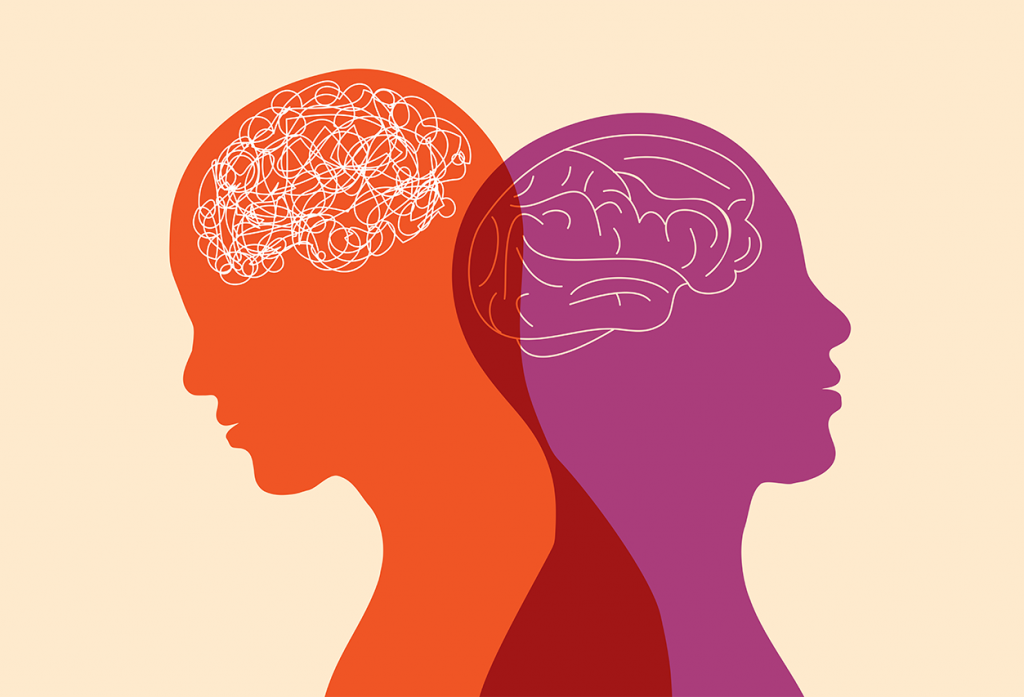What Makes an Inpatient Mental Health Program the Best Choice
What Makes an Inpatient Mental Health Program the Best Choice
Blog Article
Inpatient Mental Health Providers: A Path to Recovery and Stability
Inpatient psychological health services play a critical function in addressing severe emotional crises, using a carefully organized environment that fosters recovery and security. These services not only incorporate comprehensive analyses and individualized therapy strategies but likewise provide continuous accessibility to healing interventions and clinical assistance. The value of this approach prolongs past prompt alleviation, suggesting a transformative effect on long-lasting psychological health. The complexities of the admission procedure and the value of aftercare raising essential inquiries concerning accessibility and efficacy in the broader context of mental health treatment. What effects might these variables have for people looking for aid?
Recognizing Inpatient Mental Health And Wellness Solutions
Inpatient mental wellness services are important for providing organized and intensive like people experiencing extreme mental distress or mental disease. These services usually involve the admission of people to specialized centers where they receive continuous supervision and assistance from a multidisciplinary team of psychological health and wellness professionals. The main goal of inpatient treatment is to stabilize people, ensuring their safety and security and dealing with intense signs that might present a risk to themselves or others.
Inpatient programs commonly include a variety of restorative treatments, including private and group therapy, medication monitoring, and psychoeducation. The structured atmosphere is created to advertise healing by supplying a constant regimen, minimizing outside stress factors, and helping with the growth of coping techniques.
Admission to inpatient solutions is typically thought about when outpatient therapy options have confirmed insufficient or when a client remains in crisis. Facilities might differ in regards to their specific focus, with some focusing on certain disorders such as depression, stress and anxiety, or compound usage. Through comprehensive assessments and tailored therapy plans, inpatient mental wellness services aim to supply the needed support for individuals to restore stability and prepare for a change to much less extensive levels of care.
Benefits of Inpatient Treatment
The advantages of inpatient treatment are considerable, particularly for people dealing with acute psychological health and wellness challenges. Inpatient therapy supplies a structured setting that promotes recuperation by minimizing stressors and distractions connected with daily life. This regulated setting permits clients to concentrate entirely on their psychological health and wellness, facilitating the needed time for healing.
In addition, inpatient care deals 24/7 accessibility to therapeutic and clinical support. This continuous schedule guarantees that people can receive instant focus during situations, which is essential for those experiencing serious episodes - inpatient mental health treatment. The joint method amongst clinical staff, including registered nurses, specialists, and psychoanalysts, enhances the quality of care and promotes a detailed therapy plan tailored to specific requirements
Additionally, the common element of inpatient treatment fosters a feeling of belonging and assistance among clients. Group therapy sessions and shared experiences can relieve sensations of seclusion, encouraging individuals to take part in their recovery actively.
Additionally, inpatient programs typically supply people with crucial coping strategies and skills that can be challenging to establish in outpatient settings. By attending to underlying problems within a helpful framework, inpatient care can result in much more stable end results and a smoother shift back to everyday life, ultimately paving the course to continual healing.
Treatment Techniques and Therapies
Different treatment approaches and therapies are used in inpatient psychological health and wellness services to address the unique demands of each individual. These techniques are developed to help with recovery and advertise psychological stability in a structured setting.

Cognitive Behavior Modification (CBT) is a commonly utilized technique, assisting people in identifying and modifying negative idea patterns that contribute to Homepage their psychological health concerns - inpatient mental health services. Dialectical Behavior Modification (DBT) is an additional efficient method, especially for those with borderline individuality condition, concentrating on emotional guideline and social efficiency
Pharmacotherapy plays an essential function in therapy, with psychiatric medicines suggested to take care of signs of conditions such as schizophrenia, stress and anxiety, and anxiety. Normal surveillance and changes ensure the efficiency of these medicines while lessening negative effects.
Team treatment fosters a sense of community and support among patients, allowing them to share experiences and coping techniques. Furthermore, alternative therapies, such as art and music therapy, promote self-expression and emotional healing.
Ultimately, the combination of these varied therapeutic modalities provides an extensive treatment plan customized per person's details demands, intending to improve their general well-being and facilitate an effective change back right into daily life.
The Admission Process
Navigating the admission procedure for psychological health and wellness services is an important very first step towards recuperation. This process generally begins with an analysis performed by a mental health specialist. Throughout this assessment, the individual's psychological health and wellness history, signs and symptoms, and instant needs are extensively taken a look at. This detailed assessment aids figure out the suitable degree of treatment and guarantees that the person gets tailored therapy.
When the analysis is completed, the following step includes reviewing the prospective therapy options. The private and the therapy team collaboratively determine on the most effective training course of action, which may consist of inpatient care if the circumstance is regarded serious. This is complied with by the conclusion of required documentation, consisting of insurance coverage confirmation and authorization kinds, to guarantee that all financial and legal elements are resolved.
Additionally, family involvement might be useful source urged throughout this phase to offer assistance and collect viewpoints on the person's situation. Ultimately, the admission process aims to produce a supportive and safe environment for the client, enabling a smooth shift right into inpatient treatment. By recognizing and getting involved in this process, individuals can take an essential step toward accomplishing mental health and wellness security and recovery.

Aftercare and Ongoing Support
After finishing an inpatient psychological health program, individuals usually face the important task of transitioning to aftercare and ongoing support, which are crucial for sustained recovery. This phase is critical for enhancing the skills and dealing systems discovered throughout the inpatient remain, making sure that people remain to proceed in their mental health and wellness trip.
Aftercare usually entails a mix of outpatient therapy sessions, assistance teams, and medication monitoring. Taking part in routine therapy permits people to resolve recurring challenges and develop techniques to manage stressors in their lives. Support groups offer a sense of area and common official site experience, cultivating link and understanding amongst peers encountering comparable battles.
Furthermore, continuous support may include family involvement, where enjoyed ones are enlightened concerning psychological health and wellness problems and motivated to take part in the recovery process. This holistic strategy develops a durable support network, enhancing the person's opportunities of long-lasting stability.
Ultimately, aftercare and ongoing assistance act as a bridge in between inpatient therapy and independent living, equipping individuals to browse their mental health obstacles with durability and confidence. Focusing on these sources is important for fostering a lasting recovery trajectory.
Verdict

Inpatient psychological wellness solutions play a critical role in addressing acute emotional situations, supplying a very carefully structured setting that promotes healing and stability.Inpatient mental health and wellness services are vital for supplying extensive and structured care to individuals experiencing serious emotional distress or mental disease. With detailed analyses and customized treatment plans, inpatient psychological health and wellness services intend to give the necessary assistance for people to restore stability and prepare for a transition to much less intensive degrees of care.

Report this page